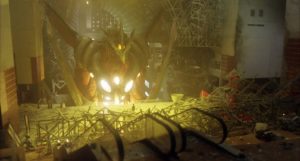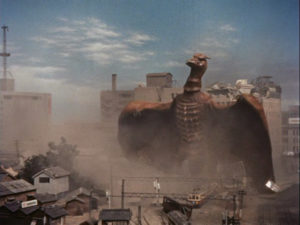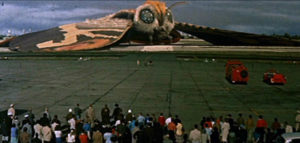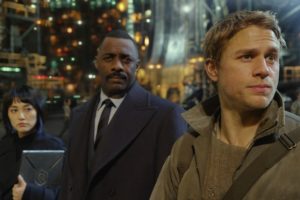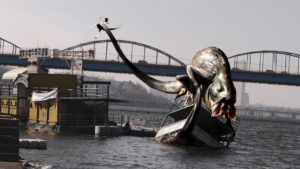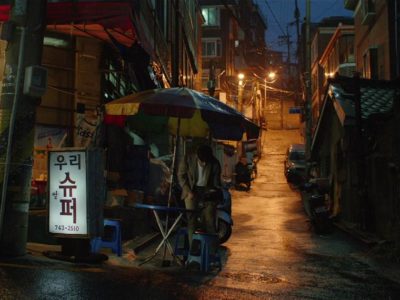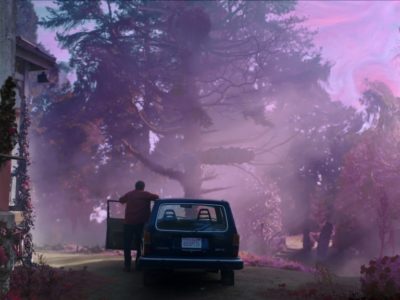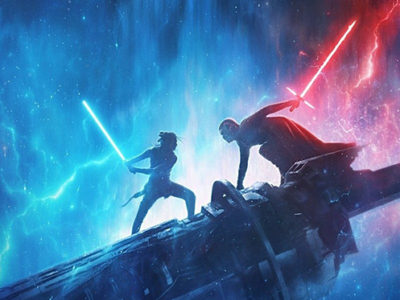Top 5 Non-Kong Non-Godzilla Kaiju Films
A blockbuster-sized testament to the fact that everyone loves seeing giant monsters brawl and wreak havoc, Kong: Skull Island hits cinemas this week. This highly-anticipated premiere, which is expected to get Legendary’s MonsterVerse firing on all cylinders, also presents me with a perfect opportunity to reflect on some of the iconic films that paved the way for our contemporary kaiju craze.
In somewhat paradoxical fashion, however, this top five list will focus on the so-called little guys of kaiju cinema—the Kong-less and Godzilla-less titles that are often overshadowed by their predecessors. Without further ado, therefore, here are my top five kaiju films in which the Eighth Wonder of the World and the King of Monsters do not appear.
5) Gamera 3: The Revenge of Iris
Conceived of by Yonejiro Saito of Daiei Film as a competitor to Toho’s Godzilla films, the giant, flying turtle Gamera made his premiere in 1965 in Gamera: The Giant Monster. Although he was originally depicted as the world’s greatest threat, subsequent iterations—most notably Gamera vs. Monster X (1970)—cast him in a more positive light, and by the time of the Heisei reboot in 1995, Gamera was known as the Guardian of the Universe. While all three of director Shusuke Kaneko and screenwriter Kazunori Itō’s Gamera films played a crucial role in helping the reptilian kaiju regain some level of international repute, the third and final film in the trilogy is in a league of its own. The Revenge of Iris has a deliberately retro feel, yet it nonetheless takes the character and the genre in new and exciting directions, wherein the thinly-veiled nuclear subtext of the 50s and 60s kaiju films are jettisoned in favor of an exploration of international politics and repressed anger and aggression. (Also, Gamera may or may not tear an opponent’s heart out.)
4) Rodan (1956)
Released two years after he directed Godzilla (1954), Ishirō Honda’s Rodan proved that the director’s success with the former film was no fluke. Moreover, it’s with Rodan that Honda proves that kaiju movies aren’t just about monster mayhem and building-smashing. The film’s exposition has an air of mystery about it, as officials in a small mining town investigate the disappearance of two miners, and Honda deftly builds narrative tension by refusing to show the titular monster (a giant pteranodon-like creature) early on as terrified villagers gaze upon the primeval horror. But even if kaiju films aren’t just about monster mayhem and building-smashing, that is, in the end, what they’re mainly about. And Honda doesn’t disappoint his viewers on this front, as the film hurtles toward a climactic showdown that can only be described as explosion-y. Of course, Rodan would later become more widely known as one of Godzilla’s innumerable foes, but this prehistoric terror is worth catching solo as well.
3) Mothra (1961)
While it may be true that a film about a giant moth who levels cities by flapping his wings sounds less than compelling, Ishirō Honda’s Mothra (1961) would have us believe otherwise. In this Atomic Age tale, a group of scientists and profiteers encounter and capture pint-sized natives on an island that has been exposed to radiation, only to discover that their act has awakened the island’s guardian—the titular Mothra. Thanks to Honda’s steady-handed direction and Shinichi Sekizawa’s somber script, Mothra is one of the genre’s most insightful and fascinating explorations of nuclear fears and Cold War anxieties.
2) Pacific Rim (2013)
Guillermo del Toro’s Pacific Rim is beautiful and exhilaratingly fun cinematic fan mail to the kaiju films of old. Yes, it has paper-thin characters and highly suspect plot devices, and so on and so forth. But in the end, del Toro said it best: “We cannot pretend this is Ibsen with monsters and giant robots. I cannot pretend I’m doing a profound reflection on mankind.” And that is the pure genius of Pacific Rim: It never tries to be more than it is—a big, loud, rambunctious, cinematic slugfest that is a sheer joy to watch—especially if you can tap into your 12-year-old self and hang on for the ride. I prefer to watch it with all of my Jaeger action figures close at hand.
1) The Host (2006)
Most widely known to American viewers for his 2013 adaptation of Snowpiercer, Bong Joon-ho’s The Host is a testament to the permeable boundaries of the kaiju genre. It incorporates elements of comedy, horror, action, and political commentary without devolving into cacophony. Additionally, Joon-ho has a remarkable ability to ground his camera in a human perspective, making the film’s kaiju—which is undersized in comparison to the others on this list—seem as ominous and intimidating as any movie monster in cinematic history. Simply put, The Host manages to raise incredibly high stakes on a relatively small scale (The film largely forgoes a worldwide disaster narrative.), and it embodies a bit of everything that makes kaiju cinema great.


